Quote:
Originally Posted by rognvaldr

I really should be done ordering but there is a dozen more I'm thinking about. Any of these must haves?
|
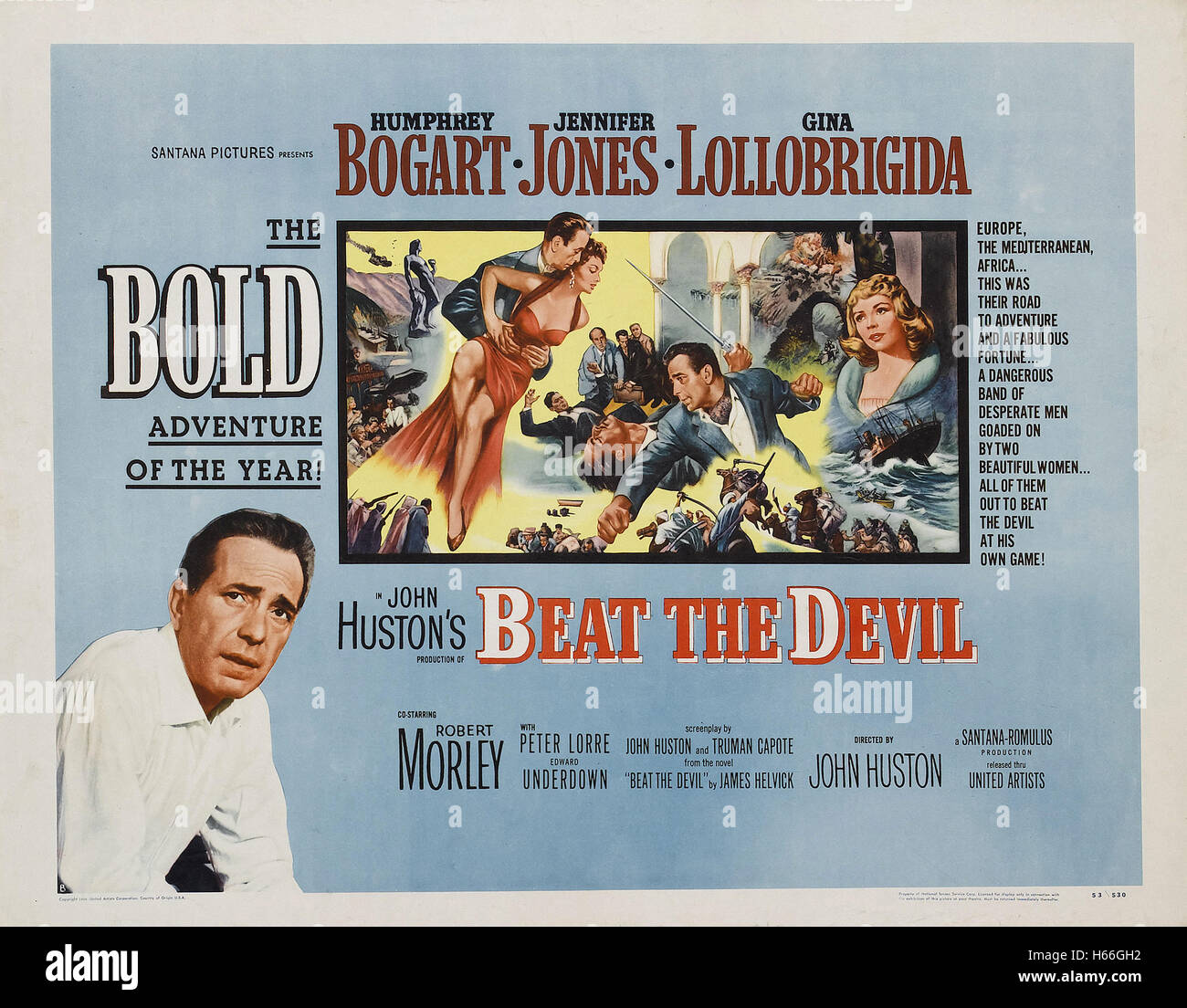 “What have we got to worry about? We’re only adrift in an open sea with a drunken captain and an engine that’s liable to explode at any moment.”
“What have we got to worry about? We’re only adrift in an open sea with a drunken captain and an engine that’s liable to explode at any moment.”
“Perfectly ordinary situation. Happens every day.”
Humphrey Bogart was by all accounts no fan of
Beat the Devil, dismissing its admirers because "only phonies think it's funny." But that was hardly surprising since he lost several teeth in a car accident during the shoot that director John Huston apparently found hysterically funny, reportedly necessitating a then-little known Peter Sellers dubbing some of his dialogue, and then lost most of the $400,000 he invested in it through his production company when it flopped. The latter isn’t entirely surprising when the 50s audiences lured in by a reunion of The Maltese Falcon’s Huston, Bogart and Peter Lorre with Robert Morley standing in for Sidney Greenstreet that the posters (see above) sold as a two-fisted romantic adventure found instead a flippant smart Alek spoof with in-jokes that many probably didn’t catch, like Bernard Lee’s character being named after associate producer (and future director of The Innocents) Jack Clayton. Like It’s a Wonderful Life it eventually found its second life after appearing to fall into the Public Domain and becoming a staple of local TV stations and cheap video labels, albeit usually in the re-edited and censored version released in the US, but it’s fair to say that in any form it’s a divisive film that audiences either love or hate.
This time the stuff that dreams are made of are uranium deposits in Mombassa that everyone wants to exploit behind the British government’s back – if only they could actually get there. Stuck in a small Italian port are a motley bunch of thoroughly undesirables calling themselves The Committee – Bogart’s ‘middle-aged roustabout’ who may or may not have once been a man of substance (
“It’s not that he means to break his word, he just forgets that he’s given it”), Morley’s domineering fitness-obsessed moneyman (
“You mean to say there are parts of the Dark Continent where you won’t be received like the Prodigal Son?”), the surprisingly less than prominently billed Lorre’s German called O’Hara (
“What’s our wide-eyed Irish leprechaun doing outside my door?”), Ivor Bernard’s rodentially diminutive and very intense ex-British army psychopath (
“Say what you want to about Hitler, he had his points”) and Marco Tulli’s sad sack Italian (
“I’m going upstairs and read my Bible”), with Bogie’s Anglophile ‘wife’ Lollabrigida (
“She seems to have a very real feeling for English country life”) adding a touch of glamour.
While they’re waiting for the drunken captain of their ship to get round to repairing the engine, two more passengers drift into their orbit and sow confusion, Jennifer Jones’ flaky unqualified liar with no control of her romantic fantasies who begins every whopper with the words “In point of fact” (
“Let’s just say she uses her imagination rather than her memory”) and her puffed-up ex-Royal Marine and ‘ruddy refugee from Earl’s Court’ husband Edward Underdown (
“You need any friends you can get. The only thing standing between you and a watery grave is your wits, and that’s not my idea of adequate protection”).
Along the way Jones imagines herself in love with Bogart (and imagines much more, none of it helpful, remotely credible or conducive to her husband’s health), Lollabrigida half-heartedly imagines Underdown is her ticket to the stately homes and beautiful lawns she dreams of and the Committee don’t know what to imagine from one moment to the next but are so determined not to be outwitted by interlopers that they end up not quite thwarting but certainly slightly derailing their plans on a regular basis instead. It’s the kind of film that talks fast and often wittily, never tells the truth and is full of relentless activity and plotting that constantly goes nowhere as everyone circles everyone else with a view to the main chance and which leaves some viewers as frustrated as its main characters while amusing and delighting those on its wavelength. Even the latter might find some irritants – for me it’s Jones’ thoroughly committed turn as the kind of fantasist who should be committed but gets a free pass because she’s just another eccentric in a film full of them even though she’s probably far more irritating and resistible than she’s meant to be – but there’s too much to compensate, from the colourful supporting cast (special mention to Mario Perrone’s blithe purser cheerfully announcing each new disaster) to its gleeful celebration of corruption and moral turpitude.

Unlike the many bootleg DVD releases over the years that use the re-edited US version with some narration from Bogart, Twilight Time’s Region A-locked Bluray is the original UK version, uncensored, un-narrated and in completely chronological order, and beautifully restored despite Columbia only having access to 60% of the original negative – indeed, it’s done so well you can’t tell which parts are from the negative and which from a fine grain UK print. With excellent definition and contrast it looks like it could have been shot yesterday, or at least if people as good at their job as Oswald Morris still regularly shot in black and white. It’s hard to imagine the film ever looking better on home video.
Along with an audio commentary by Lem Dobbs, Julie Kirgo and Nick Redman and a trailer for the restored version’s 2016 reissue, the disc also includes
Alexander Cockburn Beat the Devil, a 22-minute interview with the son of the author Claud Cockburn, who wrote the novel under the pseudonym (one of many) James Helvick because he was listed as one of the 260 most dangerous communists in the world by a Senate Committee and had been under constant surveillance by British Intelligence since 1934. It’s a somewhat unfocused affair at times, but there’s plenty of interesting information – Cockburn and his wife conspired to leave copies all around the house of a family friend when Huston was visiting in the hope he’d read it, which worked so well that the director made lengthy (and then hideously expensive) trans-Atlantic phone calls to Bogart to read him the novel and persuade him to buy the film rights – and goes to some lengths to dispel Truman Capote’s claims to have written the whole thing (as well as Huston’s unmentioned claims they made up the plot as they went along) when Cockburn Sr., Anthony Veiller and Peter Viertel had all written the earlier drafts by comparing sections of the film to their verbatim parts of the novel that reveal that many of the bon mots Capote took the credit for were simply transcribed rather than created by him.
All in all a very pleasing presentation of a film that looked condemned to third and fourth generation dupe purgatory: it smokes, it drinks, it philosophises….
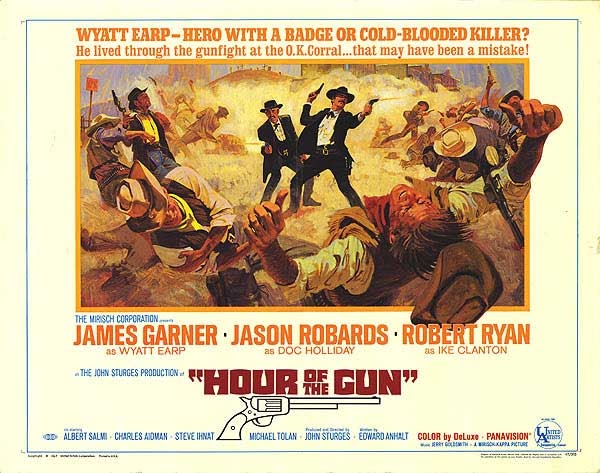 Hour of the Gun
Hour of the Gun is easily my favorite take on the Wyatt Earp legend, with John Sturges making amends for the strangely rather unsatisfying
Gunfight at the O.K. Corral with this dark, revisionist take of the aftermath that seeps with post-Kennedy cynicism. People aren't killed, they're assassinated by riflemen hiding in shadows, trials fail to see justice done, the good townspeople buy off bad guys and the motives for the Clanton-Earp feud are more political and economic than personal (Robert Ryan's Clanton is more of a calculating businessman trying to fend off encroaching Eastern conglomerates and willing to sacrifice his family to do it than the usual crooked pater familias). Throughout, James Garner's Wyatt Earp moves further away from the law as an increasingly cold-blooded desire for vengeance takes over from his principles while Jason Robards bitter Doc Holliday can do little but watch and stand dying by his side.
With a terrific script by Edward Anhalt (who gives himself a good cameo as Doc's doc) there's a neat symmetry running through the film - Clanton slinks away from the O.K Corral before the lead starts flying only to find his gang deserting him the same way at the end - enhanced by Sturges' strong visual sense, with locations always sparsely populated or streets often completely empty to emphasise the narrow focus of the conflict. Sturges' usually effortless mastery of Scope frame seems a bit forced in a couple of set-ups where you can see him lining up his actors as if blocking them onstage, but you can forgive him when he throws in an opening sequence that Sam Peckinpah borrowed for The Wild Bunch - the unscripted moment Peckinpah referred to as `the Walk thing' when the Bunch go to their final fate (Peckinpah was a great admirer of Sturges, and as even used Hour's cinematographer Lucien Ballard on Bunch). Throw in a terrific score from Jerry Goldsmith just as he entered his prime, and it's a winner.
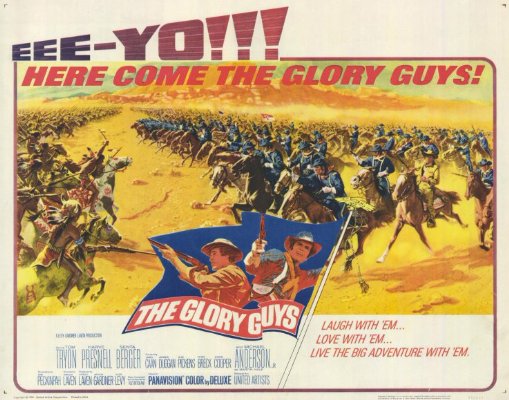 “Why, those recruits can’t ride, can’t shoot, can’t fight – can’t even get on their pants twice the same way. But for General ‘Glory’ McCabe we can all do one thing superbly – we can die.”
“Why, those recruits can’t ride, can’t shoot, can’t fight – can’t even get on their pants twice the same way. But for General ‘Glory’ McCabe we can all do one thing superbly – we can die.”
These days
The Glory Guys is one of the few films better remembered for its screenwriter credit than anyone on screen (though an up and coming James Caan certainly makes his presence felt in the lower ranks). Sam Peckinpah had been hired by Arnold Laven, his producer on
The Rifleman series, to adapt Herman Hoffman Birney’s
The Dice of God, a thinly veiled retelling of Custer’s Last Stand, back in November 1956, but by the time it finally reached the screen in 1965 Peckinpah had moved onto bigger things with
Major Dundee. Indeed, it’s even been argued that the anticipated success of the ill-fated
Dundee was the reason his script was dusted off and finally given the greenlight with Laven directing, something the casting of Senta Berger, Michael Anderson Jr and Slim Pickens from Peckinpah’s film in supporting roles – the first two, as widow pursued by both male leads and fresh-faced rookie, even playing pretty much the same characters - gives some credence to.
With 20th Century Fox planning to revive their own $18m epic,
The Day Custer Fell (the original title of Peckinpah’s script), to be directed by Fred Zinnemann with Robert Shaw as Custer and Toshiro Mifune as Sitting Bull, Custer became Brevet General McCabe and the Seventh Cavalry became the Third Cavalry, and what Peckinpah initially saw it as his Fort Apache became a more conventional Hollywood cavalry picture than a Peckinpah one, although elements that would reappear in his later work survive in embryonic form or at least were shot before being cut. The latter was the fate of the film’s brutal but now lost original opening with Harve Presnell’s scout guiding the kind of obnoxiously self-righteous Bible bashing preacher that R.G. Armstrong cornered the market in playing in Peckinpah’s own films but was here played by Claudio Brook (still billed on the credits) to a Sioux camp, where his arrogant behaviour as he tries to convert them so outrages the tribe that they torture him to death (something of a relief to his wife and daughter, we later were to discover). As Presnell rides away, hearing his screams in the distance, the film was going to cut to a new recruit screaming as he woke from a nightmare.
That scream now opens the picture, but the foreshadowing of the blundering pride that comes before a particularly nasty fall that might have added a bit more of an edge to the first half of the film is gone. Instead of any sense of mounting dread, the film puts more emphasis on its half-hearted romantic triangle between Presnell (struggling in the kind of role that Howard Keel could have done in his sleep) and Tom Tryon over Senta Berger’s gun shop owner than it does on the way Tryon and his far too raw recruits (
“Mostly misfits, sir. Japes, louts, ragtags and bobtails.”) are being groomed as expendable decoys for Andrew Duggan’s vainglorious last shot at glory and immortality, a point that’s made early and then almost completely ignored for the next hour and a half. Not that much of Duggan’s vanity remains in the finished film as he politely avoids conflict with his junior officers rather than displaying any martinet tendencies – in fact, he’s barely even a character until the last half hour, with Jeanne Cooper registering much more strongly as his wife, who’s politically astute enough to know who to charm and who to shun to advance his career.
Duggan avoids caricature, but of the cast it’s Caan’s Golden Globe nominated turn as a mouthy Oirish recruit in the days before he mumbled every line as a point of professional pride and Slim Pickens who make the biggest impression while we’re waiting for the last stand. When the fatal battle comes it’s not the one we expected, nor is Duggan’s fate handled in the way you might expect in one of the film’s few moments of deviation from cliché. Elsewhere there’s little evidence of Peckinpah’s gift for flavourful dialogue here, with most of what there is going to Pickens though Presnell at least gets to express his philosophy in terms that sound like a rough draft from
Ride the High Country (
“Drink deep, ride hard, take a hold of everything that comes your way, only double. Don’t look over the horizon: that’s the Lord’s business”). The real standout star of the film is the great James Wong Howe’s excellent Scope photography, which gives the film an impressive sense of scale despite Laven’s TV background often leading to some unimaginative directorial choices.
Ultimately there’s not really enough meat left on the bones to justify the film’s 112-minute running time, turning what sounded like a flawed but intriguing project into a more conventional one that passes muster once the arrows start to fly, even if you do have to wait longer than you’d like for that to happen.
Still, Twilight Time’s Blu-ray disc offers an impressive package of extras to compliment the decent 2.35:1 widescreen transfer. The company is run by a couple of Peckinpah enthusiasts, and it shows with an audio commentary with biographers David Weddle and Garner Simmons that doesn’t gloss over the film’s problems or those of Peckinpah’s original script, an extended version of the interview with Senta Berger conducted for Mike Siegel’s excellent Peckinpah documentary
Passion and Poetry, a vintage TV featurette about Howe shooting the film and losing his temper (sadly only surviving in VHS quality), stills gallery, trailer and booklet.

Following exiled Spaniard Tyrone Power’s adventures with Cortez (sic) and the Conquistadores in the New World after a jealous rival reports his family to the Inquisition and tortures his young sister to death,
Captain From Castile is one of those deceptively lavish swashbucklers that promise more than it ever delivers. Despite a 141-minute running time, a huge budget, a good cast (Jean Peters, Lee J. Cobb, Cesar Romero, Thomas Gomez, Alan Mowbray, John Sutton, George Zucco and Jay Silverheels among them) great locations and one of the greatest scores ever written for any movie, it still feels like it’s only just getting started when it suddenly ends – which it is, since the spectacular last half of Samuel Shellabarger’s doorstop novel never made the screenplay, let alone the cameras. Yet even without that knowledge, the final sequence feels more like a rousing sequence to lead into an intermission and leave the audience hungry for more rather than a satisfying grand finale in itself. After such a buildup, ending the story before Cortez gets to meet Moctezuma, let alone steals and destroys his kingdom, is a terrible anticlimax, especially since the novel goes on to paint his battles in particularly vivid strokes. It’s as if William Wyler decided to end
Ben-Hur with his hero thinking it might be an idea to challenge his mortal enemy to a chariot race some day or ending a film about the Titanic long before the iceberg is even sighted.
Rather than sensitivity for the Aztec culture he destroyed, the reason seems to be more dictated more by finances than conscience: having spent a reputed $4.8m on a difficult Mexican shoot in many of the then still fairly inaccessible locations Cortez marched through, spending another $4m wasn’t an attractive prospect, especially since both the censors and the Catholic Legion of Decency had made clear they found huge sections of the book unacceptable, necessitating heavy rewrites before it could go into production. As it was, the film failed to recoup its cost, though a more satisfying ending might have improved matters a bit.
Yet as much as the film disappoints on a first viewing, a second time around it’s easier to see its strengths and enjoy it as a lavishly produced period melodrama and by a third you'll start falling in love with its grandiose no-expense-spared old school Hollywood filmmaking. True, it misses the irony of the hero’s road from vengeance to spiritual redemption being found on a purely mercenary quest for riches, but Cesar Romero’s Cortez is never presented as anything other than a jovial pirate, pure and simple: the more the Aztecs try to bribe him to go home, the more he gleefully realizes they have to steal if he carries on. Director Henry King really brings his A-game to this one, marshalling his extras superbly while never losing sight of the story or the characters, the Technicolor photography is certainly handsome and the location work pays off (even providing a real volcanic eruption in the background of the final scene to match one that happened during Cortez’ march) even if most of the movie is just a long walk through Mexico with more intrigue than action. Best of all is Alfred Newman’s incredible score and its rousing
Conquest theme, truly music to conquer the world to that’s so stirring that you’ll want to give up the day job and conquer a third world country and enslave its population yourself.
Twilight Time's Bluray is another very impressive transfer that goes some way to recreating the film's original Technicolor glory (the original three strip elements being discarded long ago). A few scenes merely look very good but with slightly more muted colour than you might expect but most of it - around 95% - looks excellent, with strong detail and vivid color. The audio commentary, very welcome isolated score, featurette on Power's leading ladies and black and white theatrical trailer* have been carried over from the DVD, with the 45-minute Biography channel documentary on Power added.
* I don't know if there were any color trailers for the film on its initial release, but due to the high cost of early Three Strip Technicolor it was not uncommon for even big event Technicolor films like Errol Flynn's The Adventure of Robin Hood to be promoted with black and white trailers.

Barely seen since it opened in 1972, Charlton Heston's
Antony and Cleopatra is one of the handsomest and most vividly cinematic Shakespeare adaptations - this is first and foremost a film, and one whose epic scale often belies its surprisingly modest budget with judicious use of leftover sets from 50s and 60s epics, some well chosen Spanish locations, a bit of stock footage from Fox's Cleopatra and an impressive supporting cast. If anything the supporting cast are almost too impressive, often showing up actor-director Heston's weaknesses with the Bard's verse. While his co-stars generally favor a more naturalistic style, at times Heston goes for the kind of declamatory style that values the sound of the words rather than the meaning, a common pitfall with Shakespeare films. In his favor, Heston has the epic stature and presence to convince as a superstar of the ancient world whose fool for love act is revealing feet of clay that at first dismays and then sets his fans against him with fatal consequences, and his performance improves as he uses it against himself to expose the character's increasingly obvious flaws.
A labor of love for Heston (who apparently included use of stock footage from Cleopatra in his deal to make Beneath the Planet of the Apes), there's some real imagination in the staging - he sets Antony and Octavian's first meeting against a gladiatorial combat, while the aftermath of the battle of Actium is played out amid the wreckage on the beach - and great visuals - Heston really understands the scale of the story and the value of real locations as well as the occasional need for the kind of movement and energy that's so often missing from Shakespeare films. Not everything works (there's some flashcut inserts in a couple of scenes that are probably better as ideas than in execution), and it does tend to drag a bit in the last third, but then so does the play, yet there's more than enough here to mark Heston out as a more intelligent and imaginative director than he was ever given credit for.
It's also surprisingly well cast. Despite attracting much critical derision, Hildegard Neil is a convincingly mercurial Cleopatra, John Castle makes his Octavian equally disappointed and ruthless and there's strong support from Julian Glover, Douglas Wilmer, Jane Lapotoire, Peter Arne, Roger Delgado, John Hallam, Joe Melia and Fernando Rey (surprisingly well dubbed by Richard Johnson, who also dubs Aldo Sambrell and Juan Luis Galiardo). Even serial overactor Freddie Jones is kept under control for once as Pompey. But the film's outstanding performance is easily Eric Porter's Enobarbus, easily the finest Shakespeare performance I've ever seen on screen, managing at once to bring the verse to life without ever losing sight of the human being beneath it: his rapturous ode to "the barge she sat in" paints a far more spectacular and magical picture in the mind than anything in Joseph Mankiewicz's 1963 epic (though some of the footage from the Battle of Actium does turn up in the battle scenes). Equally worthy of star billing is John Scott's remarkable score, one of the best and most sadly overlooked of the 70s, and a thing of real beauty in its own way too
). Given a rough ride by critics in its day and now extremely hard to find again, it's well worth a look.

One of many nostalgic throwbacks that came about as major studios desperately struggled to lure audiences back to the cinemas in the 70s by offering the kind of films that used to do the trick in the 30s, albeit with somewhat looser morals,
Oklahoma Crude quickly sank into obscurity along with director Stanley Kramer’s other box-office misfires that decade (Columbia didn’t even bother to include it on their Stanley Kramer DVD boxed set), but it’s not at all bad even if it never really lives up to the excellent first half. Faye Dunaway’s the hard-faced humourless wildcat oil driller trying to defend her rig from the big conglomerates and their local enforcer, Jack Palance, rejecting the help of her long absent father John Mills but reluctantly accepting that of George C. Scott’s unemployed drifter who he hires on her behalf. Although the set-up hints at an African Queen-style romantic comedy in a turn-of-the-century western setting, the film never really goes down that route, Dunaway too stubborn to admit she needs anybody while Scott sticks around for reasons even he’s not entirely sure of.
Despite the odd bit of sexual politics (though Dunaway has as little time for women as she does for men), there’s no big message for Kramer to hammer home this time, leaving him to concentrate on the characters. Despite their love of a good juicy bit of scenery to get their teeth into, Scott and Palance both underplay highly effectively even when Scott’s urinating on him while Dunaway dispenses with all her usual mannerisms – no near hyperventilation or stumbling breathlessly over her words here – and is all the better for it, while Mills offers excellent support. It’s a handsome looking picture too thanks to Robert Surtees’ Scope cinematography and Alfred Sweeney’s production design. The sparks never really fly, but the characters stay true to their own natures en route to a rather disappointing but typically 70s ending – it’s less what happens so much as how little it changes things. Still, it’s not a bad way to pass a couple of hours even if Kramer never strikes it big.
Curiously even though they had a good widescreen master (which I believe only came out as a regular DVD release in Spain as
Oklahoma Ano 10), Sony didn't even give it an MOD release until 2012.




















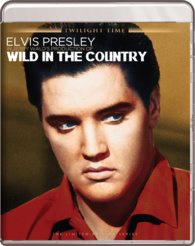
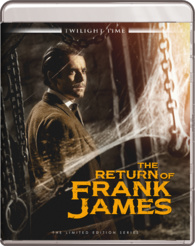
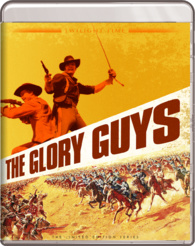
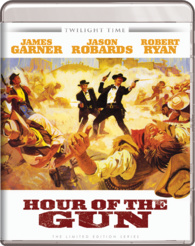
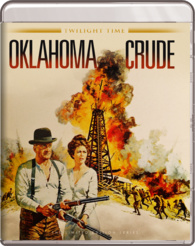
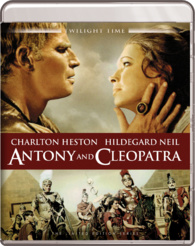
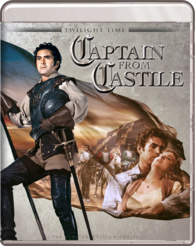
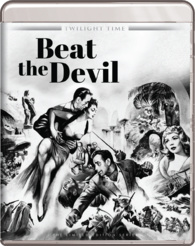


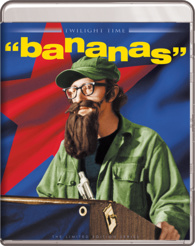
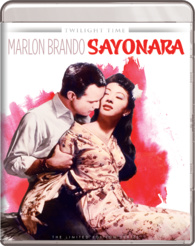
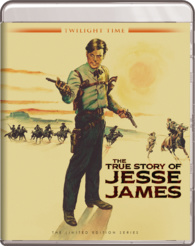
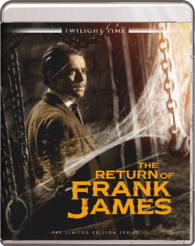
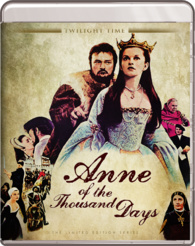
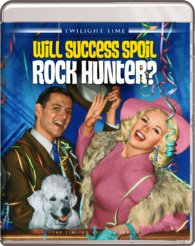
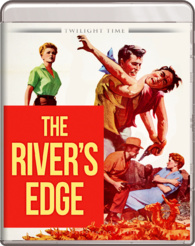
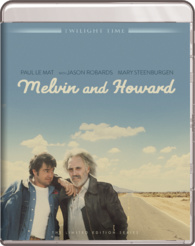
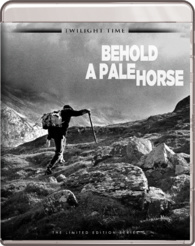
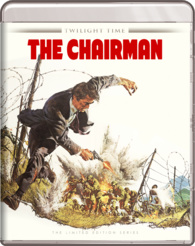














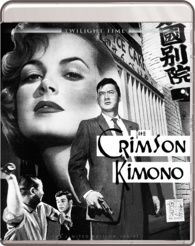
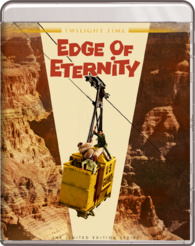
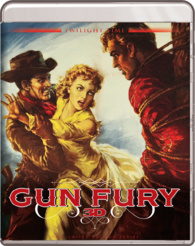
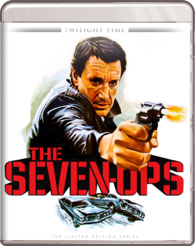
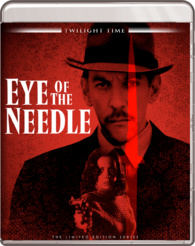
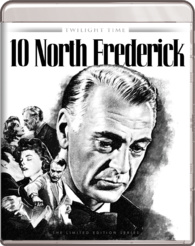
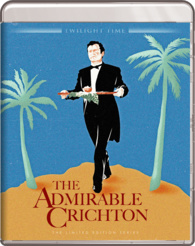
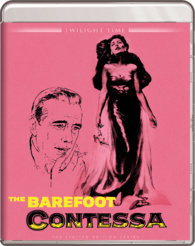
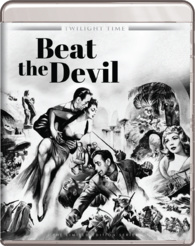
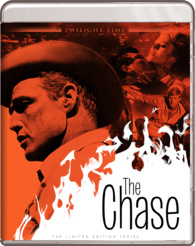
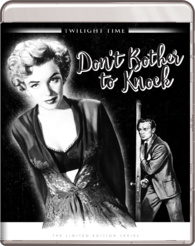

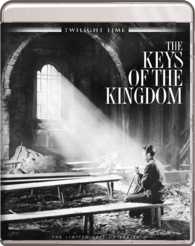
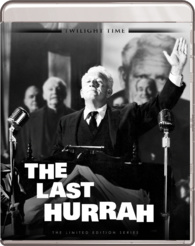
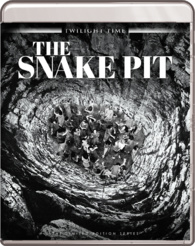
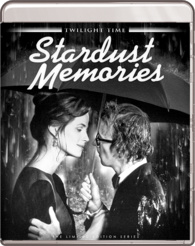
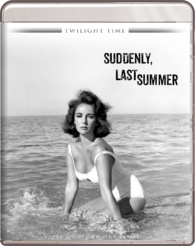
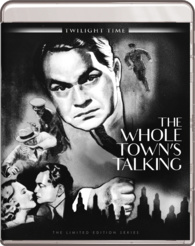








 Linear Mode
Linear Mode

